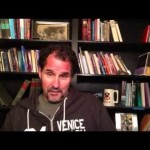We run our website the way we wished the whole internet worked: we provide high quality original content with no ads. We are funded solely by your direct support. Please consider supporting this project.
How Can Salvation by Grace Involve Free Will?
How does salvation by grace work if people have free will? If salvation hinges on whether individuals choose to be saved or not, is salvation based on grace or works? If we have to choose for or against God, then doesn’t the credit for our salvation ultimately go to us? Along the same lines, doesn’t the Bible teach that no one can choose to confess Jesus as Lord unless empowered by the Holy Spirit (1 Cor 12:3)?
If this is true, then it seems the ultimate reason why some are saved and some are not can’t be the free choice of any individual. It must rather be that the Holy Spirit empowers some and not others. And so it seems God chooses (elects) who will and will not be saved. I have found that many Calvinists settle on this belief system because they think that this is the only view that gives God all the glory for saving us. (For a time when I was in seminary, this was the argument that kept me a Calvinist — as much as I hated other aspects of the theology.)
This may surprise some, but I still find the Calvinist argument from grace to be very persuasive. The Bible does teach that salvation is completely by grace, not works. And it teaches very clearly that humans wouldn’t will to be saved on their own, apart from the Holy Spirit. Left on our own, we are “dead” toward spiritual things (Eph 2:1, 5), and corpses can’t do much of anything last I checked. To come to Christ, the Father must draw us.
If it were true that humans had enough life, goodness, or intelligence to choose God on their own, and if the reason that some were saved and some not was because some chose God on their own and some didn’t, then I see no way one could avoid the conclusion that the reason some are saved and some not is because some are better or smarter than others! So saved people, give yourselves a nice pat on the back!
At the same time, it seems just as clear that God does not pick and choose who will be saved. He doesn’t want anyone to perish but wants all to enter into eternal life (2 Pet 3:9; 2 Tim. 2:4-6). Jesus died for the sins of every person (1 Jn 2:2). So, any line of reasoning that leads to a portrait of God as less-than-universal in his love and less-than-universal in his desire to save people must have something wrong with it.
As I see it, the mistake in the line of reasoning that leads to the Reformed doctrine of election is the assumption that God’s grace must be irresistible. (This is the “I” of the famous Calvinistic Acronym TULIP). It’s one thing to say that humans WON’T believe in Christ without the Holy Spirit and quite another thing to claim that with the Holy Spirit humans MUST believe. As I put aspects of the biblical narrative together, I am led to the conclusion that God wants everyone saved and the Holy Spirit is working in every person’s heart to save them. But the Holy Spirit will not work coercively. A coerced love is not a genuine love. So it is that the Bible warns us not to resist the Holy Spirit (e.g. Acts 7:51; Eph 4:30; Heb 3:7-8). The Holy Spirit will bring us to the point where we CAN believe, but never to a point where we MUST believe. So, if we DO believe, it is all credited to God’s grace, working through the Spirit. If we refuse, however, it’s our own fault.
This view is not without its mystery, but it’s not the mystery of why God would irresistibly chose some when he could have just as easily irresistible chosen all (while telling us he WANTS all to be saved). What is mysterious about this view is how anyone could, and why anyone would, continue in their rebellion. This is the unfathomable mystery of iniquity. Whatever I make of this mystery, it seems more biblical and less problematic than the mystery of a selectively saving God.
Category: Q&A
Tags: Calvinism, Free Will, Grace, Salvation, TULIP
Topics: Death and Salvation, Responding to Objections
Related Reading

The Logical Hexagon Made Simple
by: Greg Boyd The Hexagaon in a Nutshell For those of you who don’t have the twenty to thirty minutes it will probably take to read this essay but who nevertheless would like to have some idea of what the Logical Hexagon is all about, here is my two sentence elevator speech: The Logical Hexagon…

When God Needs an Intercessor
In the previous two posts, we have been exploring biblical narratives that point to how God’s knowledge is temporally conditioned and thus supports an open view of the future, or open theism as it is commonly called. The first addressed how God regrets and the second how God discovers. In this post, I want to…

The Open View and Radical Suffering
Jessica Kelley spoke at Open2013 this morning, sharing her journey with tenderness and authority. Jessica began wrestling with her view of God a couple of years ago and embraced Open Theism prior to the diagnosis and eventual death of her four-year-old son, Henry. Everyone here at the conference was profoundly affected by her story and…

Video Q&A: Do you think Jehovah’s Witnesses and Mormons are saved?
Does Greg believe that everyone goes to Heaven regardless of their beliefs? Find out here.

Predestination: What Does It Mean?
When some people hear the biblical teaching that God “chose us in [Christ] before the foundation of the world” (Eph 1:4) and that “he predestined us for adoption to sonship through Christ,” (Eph 1:5) they think it means that God picked who would and would not be in Christ before the foundation of the world.…

